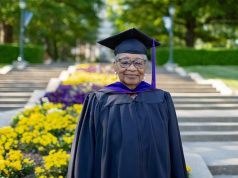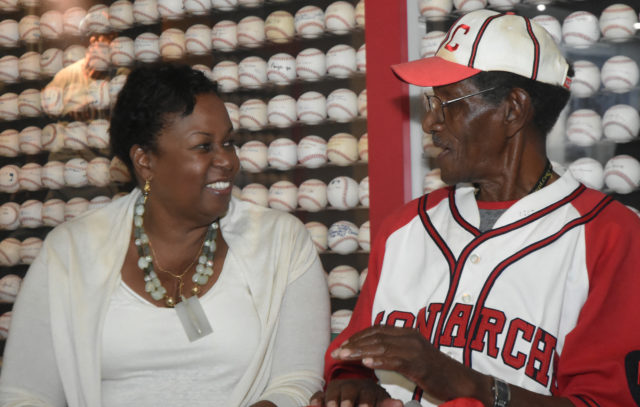
By Solomon Crenshaw Jr.
For The Birmingham Times
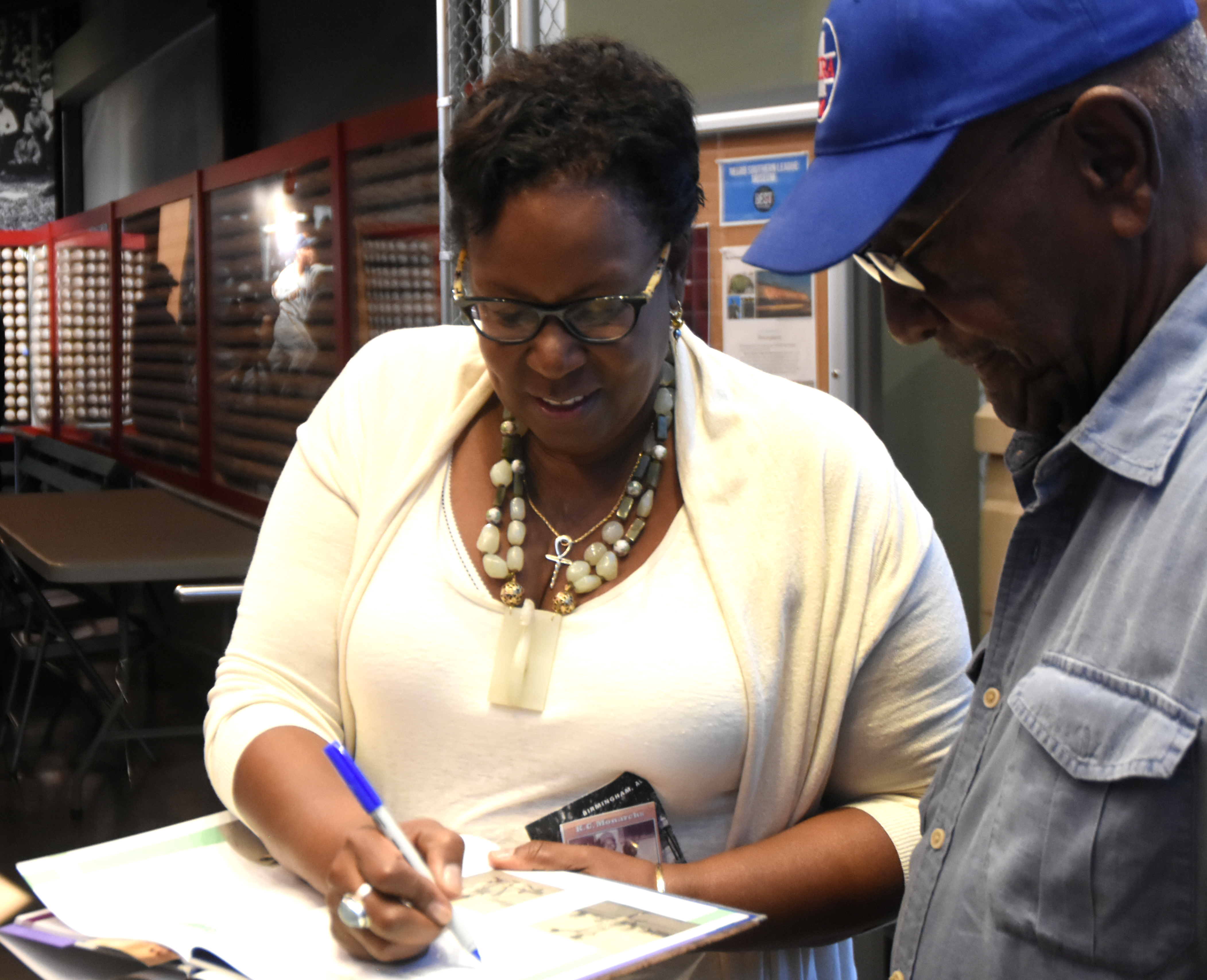
Sharon Robinson always knew her father – the legendary Jackie Robinson – was a good baseball player. But the daughter of the man who broke the color barrier in Major League Baseball didn’t realize the rough road he traveled, for himself and other African Americans.
“I had no idea what he went through to play baseball until I was in day camp and I saw ‘The Jackie Robinson Story’ for the first time,” she said of the 1950 movie based on her father’s life. “No one talked to me about that.”
Robinson was at the Negro Southern League Museum in downtown Birmingham last week to sign three of her books: “The Hero Two Doors Down”; “Promises to Keep: How Jackie Robinson Changed America” and “Testing The Ice: A True Story About Jackie Robinson.”
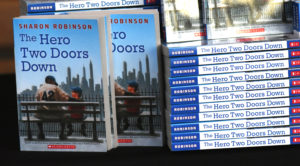
She was joined by other writers, including Chervis Isom (“The Newspaper Boy’’), Randall C. Jimerson (“Shattered Glass in Birmingham’’), Janice Kelsey (“I Woke up With My Mind on Freedom’’), Shelley Stewart (“Mattie C’s Boy’’) and Anne Whitehouse (“Meteor Shower,’’ “The Refrain,’’ and “Blessings and Curses.’’)
Sharon Robinson was born in New York City on Jan. 13, 1950, the middle child and only daughter of Rachel (Isum) Robinson and Jack Roosevelt Robinson.
At the time of Sharon’s birth, Jackie Robinson had been scheduled to go to Hollywood to film “The Jackie Robinson Story.” He traveled to Hollywood after the birth and Sharon and her mother eventually flew out to California to be with Jackie during the filming.
Her father starred as himself in the movie, while actress Ruby Dee played the part of her mother.
Robinson and her siblings were too young to have a deep knowledge of what was going on as Jackie Robinson became the first black player in the majors. She and her younger brother weren’t even born then and as they grew through their adolescent years, her parents didn’t discuss it at home.
“My father didn’t harp on it,” the author said, “so when people would talk to me about my dad, they would talk to me about what a great player he was. They didn’t talk to me about what he went through.”
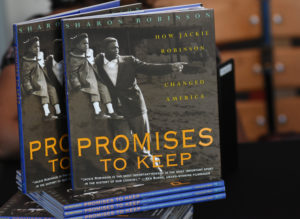
The baseball Hall of Famer helped his team, the Brooklyn Dodgers, win six pennants and one World Series championship.
But it was the slurs, taunts and other abuses that he endured that alarmed an 8-year-old Sharon Robinson when she saw the movie.
“I was so shocked that I couldn’t even talk about it because I didn’t know what it meant . . . that’s part of why I’m writing this current book about 1963.”
Since 1997, Sharon Robinson has been the director of educational programming for Major League Baseball. She developed “Breaking Barriers—It’s a Complete Game,” a program that focused on human values and women’s issues.
The daughter of the late legend was 13 in 1963, that pivotal year for the Civil Rights Movement and her parents made sure that she and her siblings were fully aware of what was happening.
The dinner table in the Robinson home regularly featured discussions of what was happening in the Movement.
“He didn’t want us to not know any of what was going on,” she said of her father. “We had a responsibility as a family to be activists. He found a way to bring us into it and into his role as a fundraiser for the Movement.”
The family hosted jazz concerts at their home to raise money. The first one was in June 1963 that helped Civil Rights leader the Rev. Dr. Martin Luther King Jr. “I’ve always been attached to Birmingham because we started raising money for Birmingham when I was 13,” Sharon Robinson said. “My brothers and I ran the soda and hot dogs concession. We made over $1,000, our first jazz concert. That was our contribution.”
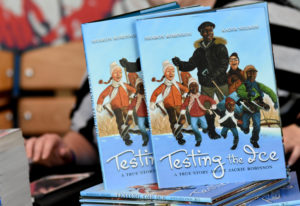
Another concert later that year raised money for the families of the four girls killed in the Sixteenth Street Baptist Church bombing.
“[My father] never harped on what happened to him, what he had to go through (as a ballplayer),” she said, “because he [saw a] far larger sacrifice.”



